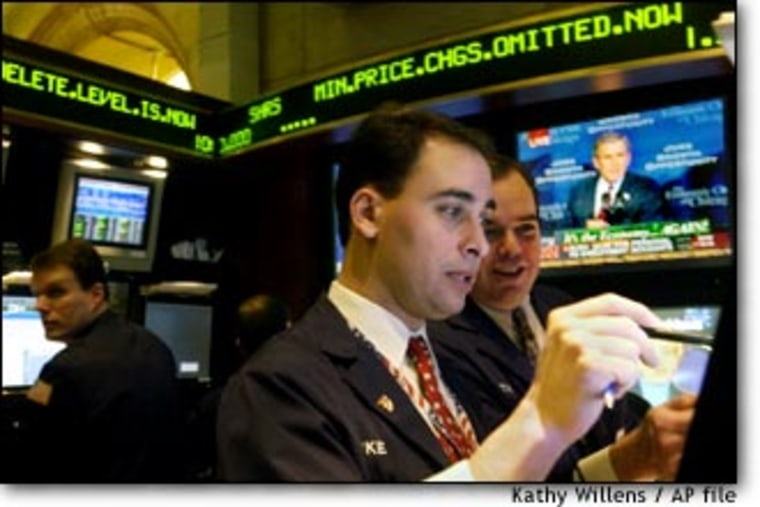As the prospect of war with Iraq has heated up, the Dow Jones industrial average has been headed lower. But what would happen to the U.S. economy and financial markets if war breaks out? History shows that if a war proceeded swiftly, the markets could recover quickly.
When the bombs began bursting over Baghdad in 1991, the one U.S. market that was open at the time, the Chicago bond market, tanked in a quick sell off that began as soon as the initial unconfirmed reports came out.
But within hours, everything changed, after then-president George Bush briefed the nation with news that “initial reports from Gen. (Norman) Schwarzkopf are that our operations are proceeding according to plan.”
With that, the markets began turning around. The price of oil plunged, and one of the last obstacles to the economic boom of the 90’s was cleared. That pattern is common in times of war, according to historian John Steele Gordon.
“Of course, markets hate nothing so much as they hate uncertainty,” he said. “And war is the most uncertain of all human enterprises. Therefore, markets tend to tank whenever the threat of war becomes imminent. But if things begin to look like they’re going very well, then markets can begin to recover extremely quickly.”
On Dec. 8, 1941, the day after the attack on Pearl Harbor, the Dow dropped 3.5 percent, and it was still down 10 percent six months later.
But the massive war effort, first supplying Britain and France and then building up the U.S. war machine, did more than all the government programs of the New Deal to finally end the Great Depression.
When World War I broke out in the summer of 1914, the shock was so great the New York Stock Exchange was closed for more than four months. When it finally reopened, prices plunged at first. But the following spring, they bounced back.
“By then, Wall Street had figured out that World War I, however terrible it was going to be in terms of human lives and its effect on Europe, was going to be extremely profitable for the United States,” said Gordon. “And 1915 turned out to be the greatest gain in the history of the Dow Jones industrial average in percentage terms.”
The Civil War not only tore the nation apart, it wreaked havoc on the financial markets.
“Lincoln wished he could hang all the speculators on Wall Street,” said Gordon. “Because they could, they made the price of gold go up and down so much depending on whether the Union army had won a victory or lost one.”
But historian David Hackett Fischer says the war helped stem a long period of deflation — a situation he says may repeat itself if there is another war in Iraq.
“This is very much like the 19th century when we had another long period of downward movements,” he said. “The Civil War created a moment of inflation.”
Even the War of 1812, which the young nation entered with no central bank and a Treasury that was virtually bankrupt, may have helped avert a more severe financial crisis.
“By 1813, the United States was absolutely dead, flat broke,” said Gordon. “And only because the richest man in the country, Stephen Girard of Philadelphia, guaranteed a loan to the government — he put up a $10 million guarantee, which was a colossal sum by the standards of the day — were we able to continue fighting that war. And we did manage to come out more or less even on it.”
And if the economy goes up in times of war, it can come down when war subsides — as it did in the Vietnam era. The escalation of that war, combined with Lyndon Johnson’s Great Society programs, created a potent economic stimulus through the 60s. But as the war ended in the 70s, the markets entered one of their worst periods ever.
And what about a new war in Iraq? If the war is swift, as many experts expect, it would have little chance to stimulate the economy, but it would remove uncertainty — a market’s greatest enemy.
But what if it didn’t go quickly? That would suggest the war isn’t going well for the U.S. And historians say there’s not much precedent for that.
